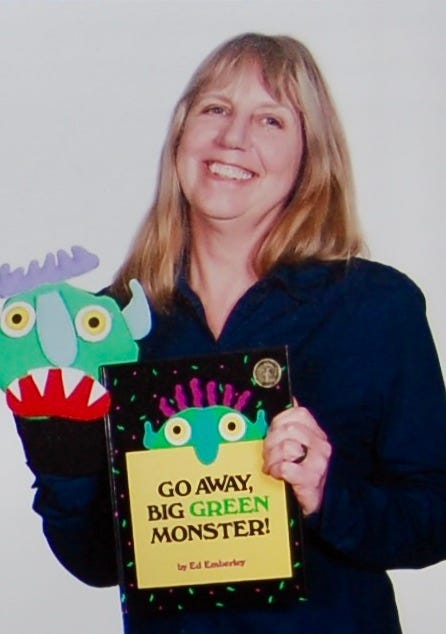Other students on campus frequently had questions about the students in our class. Why does Melissa use a wheelchair? Why does Allison get fed through a tube in her belly? Why doesn’t Alan talk?
We answered their questions about the different ways that people communicate, learn, and move around. We also talked about the fact that in most ways, our students were just like anyone else. We all want acceptance, respect, and a sense of belonging. We all sometimes feel happy, sad, angry, silly, or frustrated. We all have things we like, and things that we’d prefer to avoid. Kids are kids, and my students had far more commonalities than differences with other students.
It’s also true that all kids sometimes willfully make bad choices and are mean, disrespectful, irresponsible, uncooperative, and just plain bratty. Again, kids are kids.
Luca was the son of a young woman from the Midwest, and her energetic, passionate, and much older Italian husband. Enzo had children in Italy from his first marriage, and they were about the same age as his new bride.
Luca was on the autism spectrum and had attended general education kindergarten class with a one-to-one aide, which had apparently been a relative success. But a few weeks into Luca’s first-grade year, he was referred to my K-2 special day class.
With the increased focus on academics, and the expectation that he would be working at a desk for longer periods of time, Luca began to express his frustration by standing up and shouting, with a strong Italian accent, “SHIT!!!!! God dammitt to hell!!!!” Then he would collapse to the floor.
So he joined our class, which had fewer students and more staff to support him, and Luca settled into our routine very quickly.
A week after Luca joined our class, the school office transferred a phone call to my classroom. I answered, “Hello, Room 7, this is Norma.”
The male caller, in a strong Italian accent, said, “You are Norma?” “Yes,” I answered.
“The teacher of the special education class? The teacher of my son Luca Bianchi?”
“Yes,” I answered.
Rather dramatically, he said, “I have something to say to you.”
I was a little nervous, because while Luca seemed to be doing fine so far, he’d only been in our class for a week. And I had no idea where this conversation might be heading.
“Do you think that I love my son Luca?” Enzo asked. This was a rather unexpected question, and my sense of unease increased a bit more.
“Yes, of course, I am certain that you love Luca and are a devoted father.”
“No,” Enzo continued, “I don’t just love my son! I adore my son! He is the world to me! I love my son to the moon and the stars and the most distant point in the universe! There are no words to describe how much I love my son! And you are an amazing teacher, because my son is 100% better already!”
Enzo was clearly given to hyperbole. But Luca was happy and doing well.
One of our favorite classroom books was Go Away, Big Green Monster by Ed Emberley.
(This picture of me, and a few of my favorite teaching tools, was taken in 2012, as part of our county’s “Thank a Teacher” celebration. A lot of other teachers chose tools like test tubes and beakers, or an IPad, or a basketball. I was the only one with a cool picture book and a puppet. I still feel pleased with my selection.)
Luca entered into my eternal teaching memory when we got to the page that says, “Big Green Monster has scraggly purple hair,” and he enthusiastically shouted, “It’s like Norma’s!!!”
That afternoon, I sent Luca’s mom a note, telling her that Luca had given us the best laugh of the day with that comment.
The next day, Sharon sent back a note, saying, “I have always found your scraggly purple hair to be incredibly attractive.”
So despite the fact that I had positive interactions with both of Luca’s parents, I was still a little nervous when Sharon’s mom, a retired elementary school teacher visiting from Missouri, wanted to spend the day in Luca’s class. Would she think my expectations were too high? Or not high enough? Would she be uncomfortable with some of the student behaviors? What if someone has a meltdown?
I needn’t have worried about Luca’s grandma. She loved our class. Helen was fascinated by the way we incorporated things like gastrostomy tube feedings and urinary catheterizations into our daily schedule, and she was very impressed with the students’ knowledge, and their enthusiastic participation.
And then Helen joined her grandson in the annals of my unforgettable teaching moments.
I had called the students to come to circle time, and instead of walking directly to his seat like his classmates, Luca detoured across the room and dumped the contents of several task boxes onto the floor.
Before my teaching assistants or I could react, Helen had dashed across the room and confronted her grandson.
“Luca Bianchi,” she commanded, “you pick up everything you knocked over, and you put it back where it belongs, RIGHT NOW!”
Luca got right on the job.
Helen looked me in the eye and said, “That’s not autism - that’s naughty-ism.”
And that’s a grandma, telling it like it is.





Such a great story! Naughtyism, is that genetic, or do vaccines cause it!😳😖🤣
Thanks again, Norma for the smile and chuckle!!❤️
What a fabulous story!